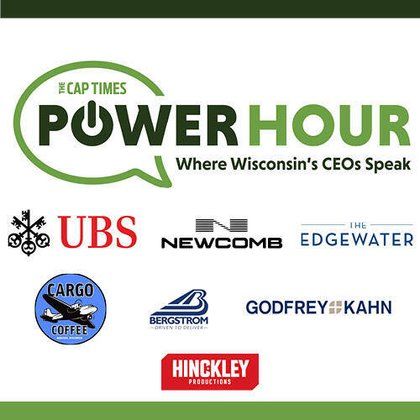By Tom Still
MADISON, Wis. – It shouldn’t surprise anyone that higher education enrollment patterns have changed, and not necessarily for the better in the eyes of those who run colleges and universities. Or employers who need what those schools produce — talent.
The announced closing of the UW-Platteville’s Richland Center campus to in-person classes after a long enrollment slide, while disputed by the community, may not be the only example of two-year UW System campuses on the brink. Nationally as well as in Wisconsin, a mix of factors has reduced college enrollment for years. Those range from simple demographics to debt worries, and from sliding numbers of male students to changing family and social perceptions.
None of that alters the fact that college-educated students with some sort of degree – two-year, four-year or beyond – earn more than people who do not. Employers want students who have skills and the ability to learn, even if they must enhance that schooling with their own on-the-job training.
In Wisconsin, UW System and Wisconsin Technical College System schools offer training across an array of topics, including those skills in top demand in today’s economy. Those include engineers, medical professionals, teachers and more. What may be less known is that Wisconsin’s 23 private colleges and universities, pound for pound, are filling many of those same gaps.
“When I speak with legislators and others, two things that surprise them most about private colleges and universities is the high percentage of graduates in STEM, health and business occupations, and the sheer cost efficiency that comes with a higher four year graduation rate,” said Eric Fulcomer, president of the Wisconsin Association of Independent Colleges and Universities.
With universities as large as the Medical College of Wisconsin and Marquette, and as small as campuses with just hundreds of students, WAICU members vary dramatically in what they teach. However, they collectively produce about 13,400 graduates per year, which makes up nearly a quarter of bachelor’s degrees awarded in Wisconsin and a third of advanced degrees.
Those undergraduate degrees include 24% of all business majors produced in Wisconsin, 27% of engineering graduates, 44% of health-related degrees and 56% of nursing degrees. The acronym “STEM” stands for science, technology, engineering and math, which are included in that mix and other degrees.
“We’re a big part of the workforce conversation,” Fulcomer said of WAICU member schools, in part because “time to degree” is more predictable and because student grants make private schools affordable for all types of students, not just those with money.
In fact, nearly 30% of private-school students qualify for federal Pell Grants, according to a recent publication by WAICU. About 95% get some sort of financial aid, including state grants.
Fulcomer arrived in Wisconsin last fall to succeed Rolf Wegenke, who retired after about 30 years leading the private college association. Fulcomer was president of Rockford University in northern Illinois, a veteran of about three decades in higher education and a native of Ohio.
In a recent interview, Fulcomer was asked whether students and parents should let “indoctrination” fears presented by some politicians prevent people from entering colleges and universities. While there are always anecdotal examples, he said, that’s far from the pattern in colleges where he has worked or become familiar.
“It’s come up in some of my meetings with the Legislature. Some legislators are suspicious of higher ed,” Fulcomer said, “but examples that are most often cited are extreme examples. I’ve worked in higher ed for 30 years, and in my own experience, that’s not what I’m seeing.”
“Education is a pipeline, and there are all kinds of versions in the pipeline… We’re not about indoctrination but preparing students for a lifetime of vocation and service,” he added.
Higher education is undergoing change in Wisconsin and elsewhere. It will likely take all shapes and sizes of that “pipeline” to replenish the workforce with the talent the state needs.
Still is president of the Wisconsin Technology Council. He can be reached at tstill@wisconsintechnologycouncil.com.





